Plumbing 101 - What You Need to Know to Take Care of Your Anaheim Home
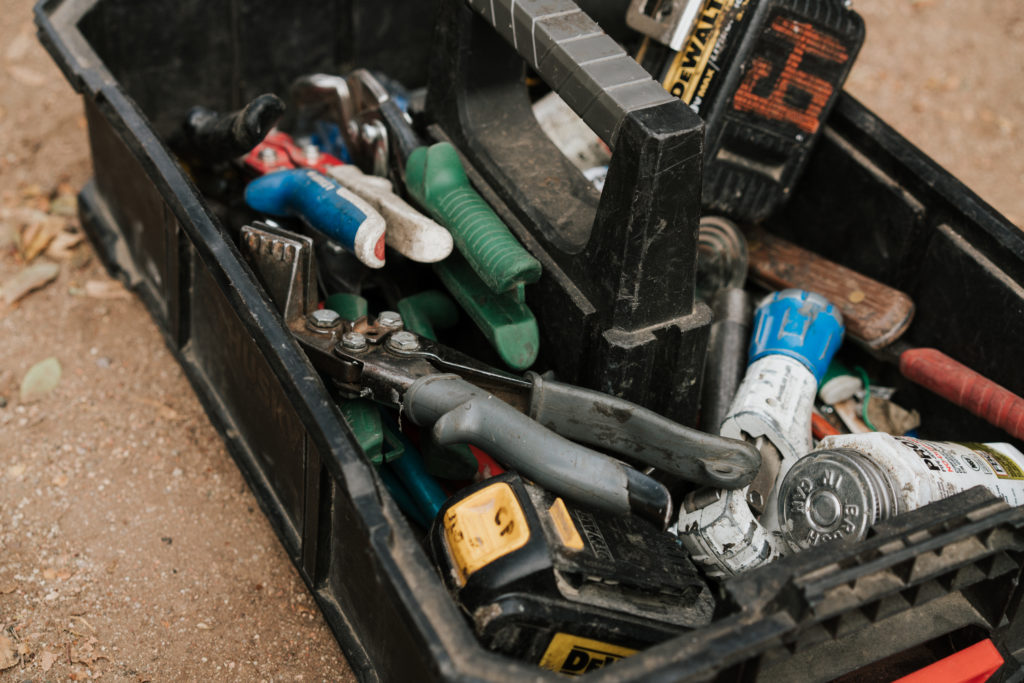
Anaheim is known for its great attractions and wonderful weather, two of the many reasons people love to call Anaheim home. The Southern Californian residents are fortunate enough to have warm weather for the majority of the year, allowing them to do whatever they want to do whenever they want to do it! But imagine having a great day full of fun at Disneyland and coming home to a busted pipe in your home? That would be sure to ruin anybody’s fun! Today we are going to discuss all things Plumbing 101, from routine maintenance to 24-hour plumbing repairs, we will break down the ins and outs of everything you may need to know! So when something pops up, you have the right tools to get the job fixed quickly.
Plumbing 101
Plumbing revolves around three basic things: gravity, pressure, and water seeking its own level. Knowing that these are the main three factors causing issues in your home can help you save money, time, and frustration!
Two Main Systems
Homes are fitted with two main systems, one for bringing fresh water into the home and one for removing waste. The water traveling into your home is always pressurized so it can travel where it is needed! Upstairs, in the backyard, in the basement, and even in your kitchen, water travels quickly via water pressure. In a plumbing emergency, it is crucial to understand where your main shut off is. This will allow you to shut off all water going into your home in a quick manner. In a matter of seconds, your home can become flooded if a main pipe breaks and you can prevent any further damage by understanding how to turn it off quickly!
The drainage system or waste system runs on a whole different set of principles. Instead of using pressure to move around the waste, this system uses gravity! The drainage pipes all pitch, or angle, downward. Gravity pulls the waste along. The sewer line continues this downward flow to a sewage treatment facility or a septic tank.
Common Issues and Easy Ways to Fix Them
Clogged Drains
Your sinks in your household are put through more issues than most people go through in their entire life. Endless amounts of hair, saliva, shaving cream, makeup, you name it, are put down the bathroom sinks on a daily basis. Every once in a while, you can get a clog that holds up any sort of drainage. Most people first tend to think it may be time to buy some Draino! But this is not the first solution to the problem. There is a much cheaper way to get the job done…. Try removing the trap and clearing any contents that may lie inside. This is usually the first step to take because you will be able to solve the issue very quickly! Draino is costly and does not always work. If it is a toilet that is clogged, first try using a plunger and see if you can get rid of the blockage. Sometimes professionals are needed to fix toilet clogs but for the most part, a simple plunging should fix the issue!
Leaking Sinks and Faucets
Sometimes your sinks and faucets begin to leak. This can be caused by a number of things, but the solution is usually somewhat simple. First, try tightening any loose nuts or bolts that may be causing the leak. Sometimes a water line will be loose underneath the sink which can cause issues. It is a great idea to periodically check under your sinks because any unattended leaks can cause huge issues in the long term! Sometimes a leaking sink or faucet is something that cannot be explained other than the sink or faucet is old and needs replacing.
Garbage Disposals
One of the most annoying things to deal with as a homeowner or tenant is a busted garbage disposal! It makes irritating noises when broken and is somewhat scary to fix with the blade of unknown down in the dark hole. There are a few steps that are needed to be taken to assure a safe fix! First, press the reset button on the bottom of the garbage disposal, located underneath your kitchen sink. If you hear a noise but then it quickly turns off, it is likely an obstruction. If you don’t hear anything, the unit itself may be broken.
Obstruction
When something is blocking the garbage disposal it is smart to make sure you unplug the unit from the wall before sticking your hand down the sink. Check to see if any debris may be causing the blades from spinning. Sometimes glass gets broken down there causing big issues so make sure to be careful when feeling around. If you do not find anything in the sink, the next step would be to manually crank the garbage disposal. There usually is a spot to turn with an Allen wrench. Keep turning until the unit seems to be spinning with ease. This is usually what fixes the issue! If not, you may need to reach out to a local expert.
Preventative Maintenance
Water is one of the most damaging elements that there is on this planet. In just a matter of minutes, your entire home can be flooded and ruined if a main pipe bursts. The key to maintaining a safe home is to continue to take preventative action with your pipes. When an emergency occurs in someone’s plumbing line, everything in its path is usually ruined, costing many dollars and many hours of cleanup.
There are two main things that we recommend you do on a monthly basis. One, check your water pressure. Low water pressure is very uncommon and usually not damaging, but high water pressure can ruin homes. Most state plumbing codes call for the pressure to be below 80 psi, but sometimes things can go wrong! This is why you should regularly check the pressure. High pressure can destroy anything in its path. The second tip is to visually inspect your plumbing. You will often see signs of wear or tear on your pipes well before they burst, so catch the issue early!
When in doubt, you can always reach out to NexGen for more advice and for a full evaluation.
Call NexGen HVAC & Plumbing
You're expert plumbing and HVAC professionals in Anaheim and Palm Desert. Our expertise and commitment to customer satisfaction make us the leading HVAC company in Southern California. To learn more about our equipment, services, and protection plan, book an appointment online or call 888-277-0415.
What Do Palm Desert Homeowners Really Want in a House?
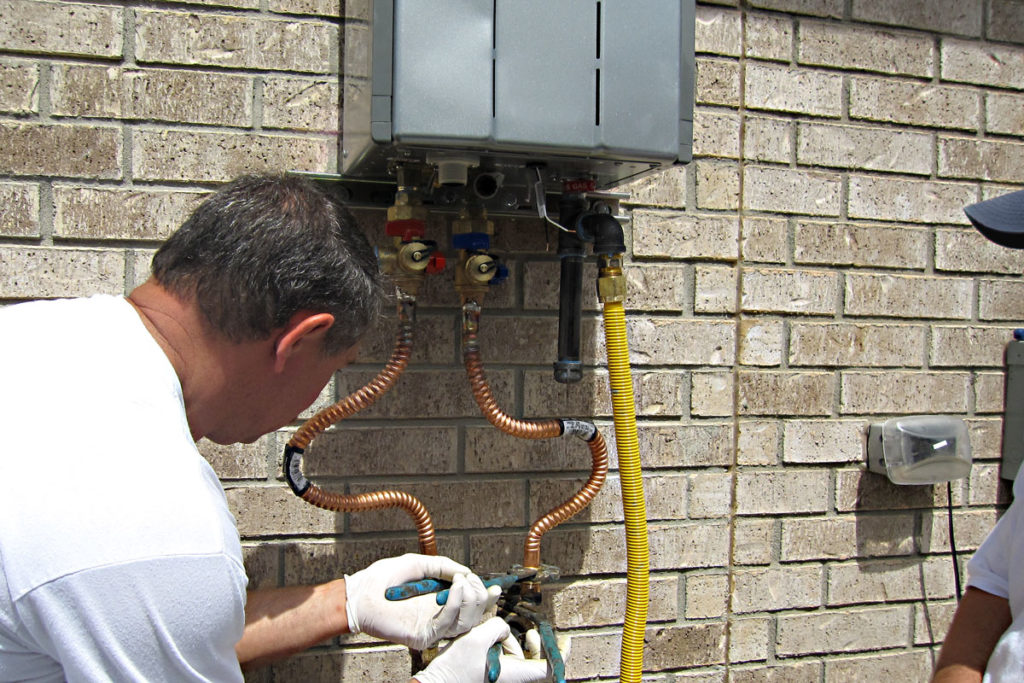
We’ve all watched (or binge watched) those HGTV shows about home remodels and what people want in a home. After watching a few episodes, you get the impression that most people want marble floors, an open concept home, walk-in closets and a gameroom.
Really?
Sure these things are really flashy and make for great TV, but is that what we really want in a home?
The answer may surprise you:
That’s right, the answer to this question is far from what HGTV portrays. In fact, according to a new survey from porch.com, the #1 must have in any home is…
Drumroll Please!
…
A Central heating and Air Conditioning System!
That’s right:
A central heating and air conditioning system is the most important feature of a home, according to the 1,000 homeowners and renters that porch.com surveyed.
In all honesty:
We couldn’t agree more! Of the surveyed, 82% said it was totally non-negotiable if a home didn’t have central HVAC. Home buyers need AC - that’s final.
For our local Palm Desert residents, this is definitely a no brainer. With summer heat reaching well over 110 degrees and winter nights being fairly cold, central air and heat is a must have for a baseline level of comfort.
Here’s the thing:
Where a new kitchen would be nice, the price tag may be enough to drive people away because a new kitchen is just a “nice to have”. But when it comes to central AC, most people agreed that they’d be willing to shell out quite a bit of money to make sure they have an energy efficient unit that heated and cooled their home quickly and reliably.
In fact:
People are so willing to spend extra for central HVAC systems in their homes that they are willing to pay a premium when buying a house if HVAC is included. A June case study by Zillow found that homes with central heating and air sold for about $5,500 more than homes without it. Regions with hotter climates, like right here in Palm Desert, went for a premium of over $11,000!
With the weather as crazy as it is (it feels like summers are getting hotter and winters are getting colder), HVAC may become an even more important aspect of our homes. We may even start featuring HVAC on these HGTV home remodel shows that we love so much!
Call NexGen Today
Our expertise and commitment to customer satisfaction make us the leading HVAC company in Southern California. To learn more about our equipment, services, and protection plan, book an appointment online or call 888-277-0415.
Is a Higher SEER Better?
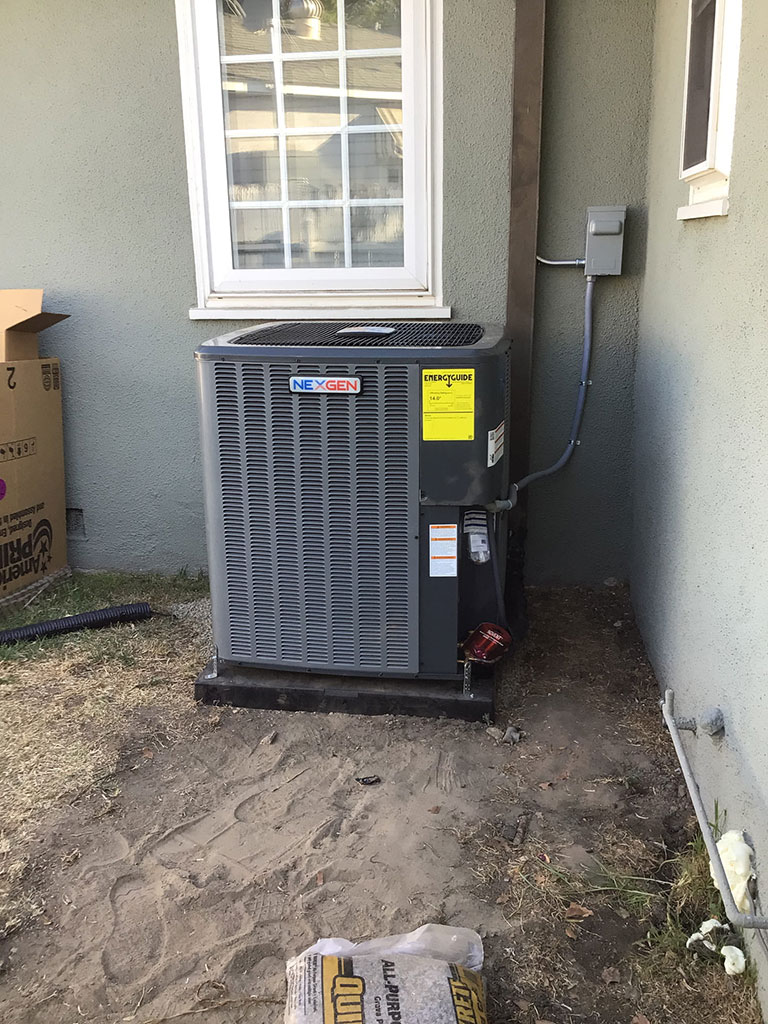
A SEER rating is a maximum efficiency rating for your air conditioning or heat pump equipment. This means that although the SEER rating displays a certain number, it is not always working at that number – the advertised SEER rating is simply the maximum level of efficiency it can operate at.
Think of it like MPG in your car, it may have been advertised at 30 MPG but maybe you accelerate a little too often and you really average 20 MPG. Apply this concept to your AC unit and you can see how constantly changing the temperature in your home can result in a decrease in efficiency and a suboptimal SEER rating.
Are high SEER ratings worth it?
The most common sales pitch for high SEER AC units is “this unit will pay for itself in 10 years!”, or something along those lines. That high SEER rating is the MAXIMUM level of efficiency, it is the limit of your AC unit. This means that if you live in an area with major swings in temperature you are not going to get that SEER rating. In fact you probably won’t get anywhere close to it.
This is especially true in the desert where you may be turning on your heat at night to combat the steep temperature swings. The reason for this is multi-faceted but the major things are insulation and heat sinks. Your insulation is designed to keep your home either warm or cool, this sounds like a great concept and it is, except when you have 50-degree nights and 90-plus-degree days. All of the items in your home including that insulation is going to hold onto and begin to release that heat throughout the day, this is going to cause your AC unit to have to work harder in order to cool your home, which decreases its efficiency. This can be compounded by a lack of shade or air movement around your home. This means that the fan has to run more often in your outdoor unit.
“Air conditioner manufacturers provide a time delay setting on most new equipment as a means of increasing the SEER rating,” Proctor has written. “The delay is timed to maximize performance on the SEER test, not to provide maximum benefit in dry climates. The 90-second delay commonly used by manufacturers … produced [only] a 3% improvement in sensible SEER [in California’s central valley].
What this means for people in desert climes is that there is very little need to have a high SEER unit. Another thing to consider is that the SEER rating is based off of an AHRI match system, so while you may have a “20 SEER” AC installed in your home, it’s really more like 14 SEER once you take into account that your furnace and coil are not matched to the outdoor unit and are therefore not working at maximum efficiency. So is a high SEER AC unit worth the money? Yes, if you are going to have an entirely new HVAC system put into your home it is worth the extra money.
Call NexGen Today
Our expertise and commitment to customer satisfaction make us the leading HVAC company in Southern California. To learn more about our equipment, services, and protection plan,
book an appointment online or call
888-277-0415.
Best Air Conditioners for the Palm Desert Summer Heat
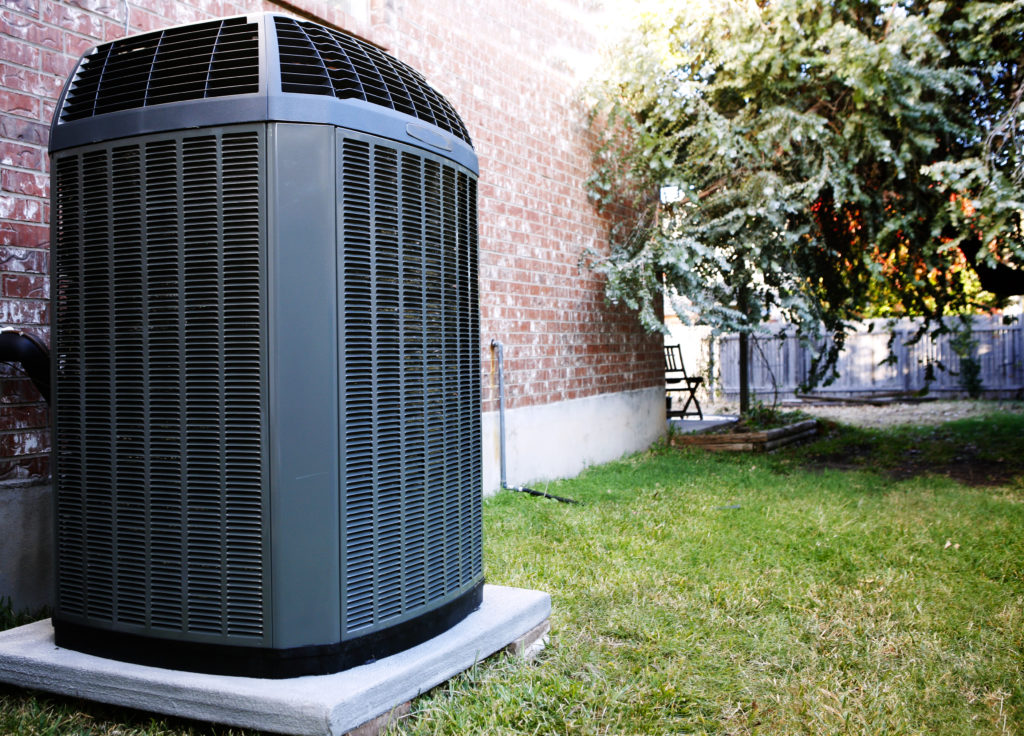
If you live in Palm Desert, or anywhere close by, then you know how a painfully hot day feels. You also know that a good air conditioner is absolutely essential. If you’re looking to get a new air conditioner or want to make sure that you have a decent one, you’ve come to the right place.
New Air Conditioners
If you’re in the market for a new air conditioner, there are a few things to consider: the size, the energy efficiency, and the manufacturer.
Air Conditioner Size
Surprisingly, bigger isn’t always better what it comes to air conditioners. If an HVAC system is too large for your home, it won’t cool your home as efficiently. Plus, overly powerful air conditioners will run for a shorter amount of time, meaning that they won’t have time to properly reduce the humidity in your home. This leads to more sweat, and in the worst cases, to mold in your home. Instead, consult an air conditioning contractor to find an air conditioner size that is exactly right for you. We want you to end up purchasing just enough cooling power, instead of wasting money on size when you don’t need it.
Air Conditioner Efficiency
Get the most bang for your buck with an energy-efficient air conditioner. The U.S. government’s EnergyStar program is the general authority on energy-efficient air conditioning units, so take a look at their recommendations. Greater energy efficiency means a better machine that uses less power for the same cooling effects, saving you money in the long run. A more efficient product means a potentially higher threshold before it hits maximum power, giving you more cooling power over time.
Air Conditioner Manufacturer
There are several trustworthy air conditioning manufacturers out there. Check online reviews, Consumer Reports, and various warranties. Here at NexGen, we partner with Daikin. Daikin has proven to be a customer favorite, and we’ve found them to carry consistently reliable and efficient products. We make sure to only carry air conditioning units that have passed required testing, including tests that make sure units are able to perform in temperatures above 115°F.
Your Current Air Conditioner
If you already have an air conditioner, there are a few ways to help it be the best air conditioner it can be:
If your current air conditioner isn’t performing well, it might not yet be time for a replacement. Before you decide to upgrade, get it checked out for maintenance or service issues. Replacing the air filter, especially when it’s been constantly running in extreme heat, could help your system work like new again. Repairing any loose parts, faulty wiring, or corroded pieces could also be a cost-effective way to get great cooling power. However, if your unit is legitimately older and in need of major repairs, we can also help you with air conditioning replacement.
Air Conditioner is Not Obstructed
One of the number one issues between you and a cool home could simply be objects in the way of your air conditioner. Keep at least a three-foot diameter around your outdoor air conditioning unit. This means that fences, shrubs, landscaping, etc. all stay clear of your unit. You’ll be surprised about how much better your air conditioner works when it has enough room!
Outdoor Air Conditioning Unit is Cool
Finally, keeping your outdoor unit in good condition can make all the difference. Keep it out of direct sunlight, away from the sprinklers, and free from debris. When the unit isn’t under too much heat or outdoor stress, it can do its job and keep your home cool.
Call NexGen Today
Our expertise and commitment to customer satisfaction make us the leading HVAC company in Southern California. To learn more about our equipment, services, and protection plan,
book an appointment online or call
888-277-0415.
How to Pick the Best Mini-Split Air Conditioning System
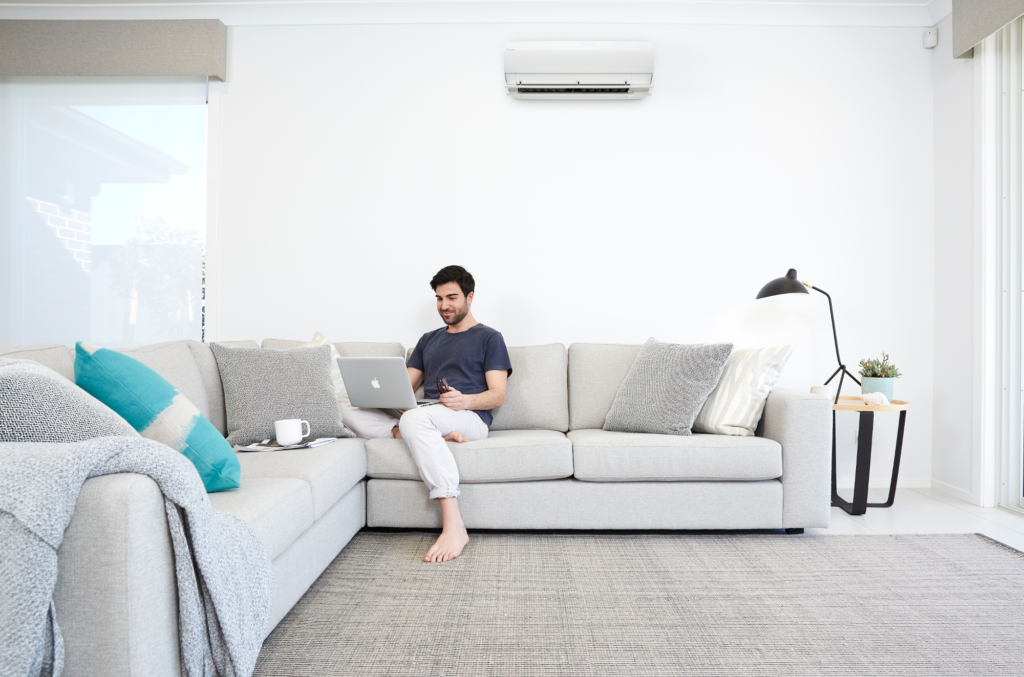
Have you ever wished that you could make a room a little cooler without turning on your entire HVAC system? Or that you could turn off the air conditioner for just one room, to save some energy? Now, we have that technology. A mini-split air conditioner, or ductless air conditioner and heater, is a room-by-room system that can save energy and money.
Advantages Of A Mini-Split Air Conditioning System
There are a few things to consider when buying a mini-split air conditioning system. However, before asking those questions, here are a few of the advantages of any mini-split over another type of system:
No ductwork
There are several reasons that a homeowner might want to avoid ductwork. For older homes, ductwork can be difficult or costly. For homes that enjoy consistent good weather, it is often unnecessary. And for homes with allergies or pets, dust and hair can build up in ducts. Mini-split systems avoid the large upfront cost of tearing through walls and installing ducts.
Change the temperature room by room
One of the biggest advantages of a mini-split system is temperature control. Each person in the family often has different temperature desires, and now each person can control their own room. If only every argument could be solved so easily! This also means that you can turn off rooms that don’t need to be cooled, saving money and energy.
Extra quiet
Because ductless mini-splits are smaller and don’t pump air through ductwork, they’re much quieter than traditional central air conditioners. They can even be as low as 19 decibels loud, which is quieter than the average whisper.
More efficient
HGTV notes that you can lose 25% or more of your air conditioning energy by pumping air through ducts. A ductless mini-split system avoids this problem, and makes sure that you’re getting the most out of your cooling energy by pumping it all directly where it needs to go.
How To Choose Which Mini-Split Air Conditioning System
If you choose a mini-split air conditioner, there are several options. Here are some questions to ask to make sure you get the best system for you and your home:
How many rooms do I need cooled?
Ductless mini-splits are a room-by-room cooling option. Before purchasing, consider how many mini-splits you may need. How many rooms will you consistently need to cool? Are there rooms that stay cool on their own, or don’t need to be cool (like a garage?) Remember that two separate rooms will count as one if they don’t have a door or wall separating them.
How will the system fit into my home design?
Some consumers are hesitant to buy a ductless system because it’s more conspicuous than ducts. Browse models to see which might fit best into your home design, and consider where you might put it in your home. Many people share that they often forget their unit is there after a few days--except for that nice cool air!
Which brands are the most reliable?
Consult review sites, especially reliable networks like Consumer Reports or the Better Business Bureau, to find reliable brands and contractors. Ask experts in the field about which systems last the longest, and which ones customers seem to be most happy with. If you’re looking to save energy, see which systems meet Energy Star standards.
At NextGen, we’re proud to be certified and licensed contractors, and we would love to start helping you and your home stay cool. Contact us today!
Call NexGen Today
Our expertise and commitment to customer satisfaction make us the leading HVAC company in Southern California. To learn more about our equipment, services, and protection plan,
book an appointment online or call
888-277-0415.
10 Signs It’s Time to Replace Your Electrical Panel
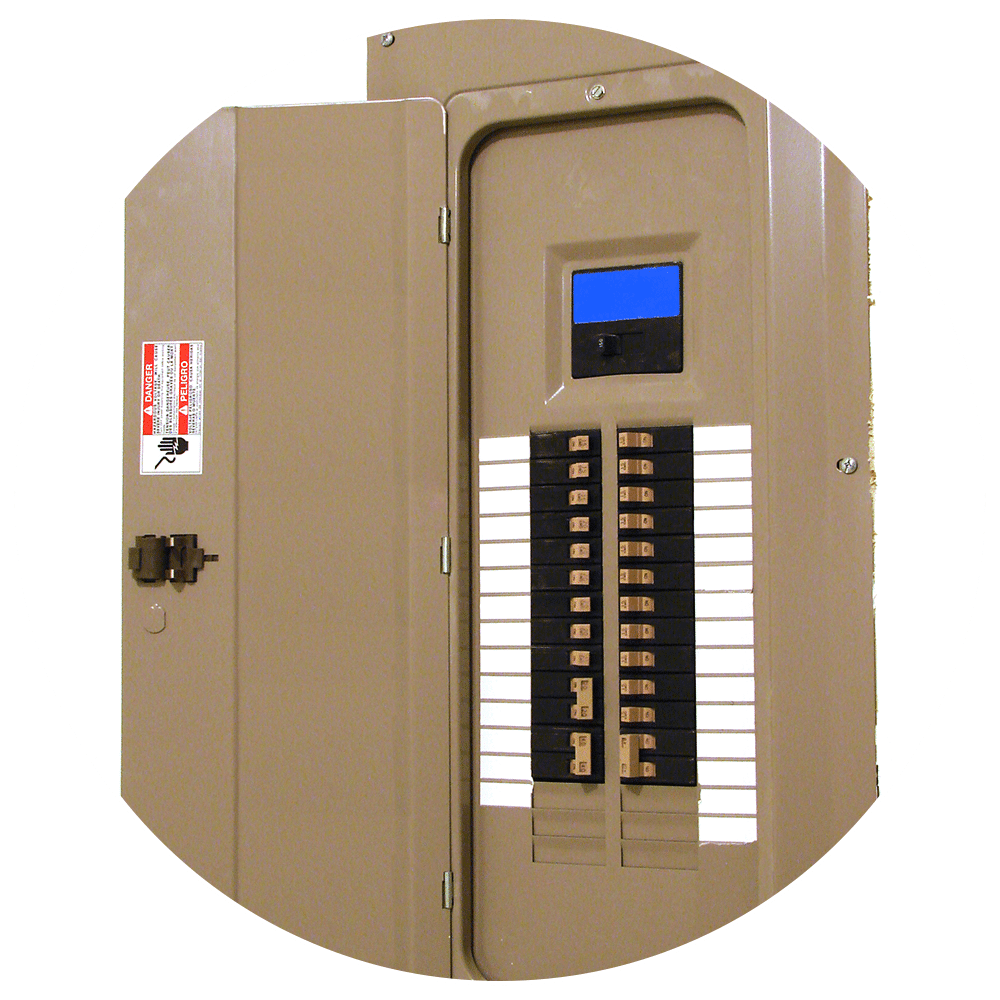
Your electrical panel is an essential part of your home. It regulates your electricity to make sure that you get the power you need, without the risk of overheating and causing a fire. At the very least, an old or malfunctioning electrical panel can be inconvenient. At the worst, it can be a safety hazard. Here are some signs that it might be time to update your electrical panel.
1. Your home is built before 1960.
While most modern homes need at least 200 amps of power for all of their electricity needs, older homes may have as little as 30 amps available. Older homes may also have worn-out wires and parts, and outdated fuse boxes. This may mean you can’t use the electricity you need--or worse, that your worn-out panel puts you at risk for an electrical fire.
2. Your electrical panel is more than 25 years old.
Electrical panels usually last 25-40 years. Parts naturally wear out or become less effective over time. If you can’t remember having your breaker looked at, or if you’ve been in the same house since the 90s, it’s time to take a look at it.
3. Your breakers trip often.
Do some of your breakers trip when you plug in certain appliances? Does part of your power occasionally go out? Do outlets not work if you plug in one too many things? These are all signs that your panel doesn’t have enough capacity, and definitely needs an update.
4. Your electrical panel smells burnt or like melted plastic.
This is a dangerous sign that it’s time to update your panel for the sake of safety. Any burning signs or smells are a sure sign that something’s wrong, and that you might be in danger of a fire.
5. You’ve recently added a new appliance.
If you’ve recently added something new, especially something high-powered like an air conditioner or hot tub, you might need more power to accommodate it. Make sure your electrical panel is up to date to ensure that you get the most out of your new item!
6. Your lights dim when you plug in something new.
If your lights dim when you use the microwave or vacuum, then your electrical panel isn’t strong enough for your home. Consider updating to higher amps and newer equipment to make sure you have all the power that you need.
7. You have a fuse box instead of an electrical panel.
Fuse boxes, common in pre-1960 homes, are an older method of controlling your home’s electricity. Instead of tripping a breaker, fuse boxes “blow a fuse” when the panel overheats. This means having to go out and replace blown fuses instead of simply turning the breaker back on. If you have a fuse box, it’s definitely time to upgrade.
8. Your panel feels warm or hot to the touch.
One of the main purposes of an electrical panel is to prevent overheating, which can cause a fire. If your panel is often hot or warm, it may not be doing its job correctly and could be putting you at risk.
9. You need more outlets than you have.
Do you find yourself wishing for more outlets? Do you use a lot of power strips to fit everything? This could be a sign that your electrical system wasn’t designed for what you need, which likely means the electrical panel isn’t enough.
10. Your electrical panel hisses or buzzes.
Strange sounds are never a good sign. Hisses or buzzes could mean a bad wire, or that something isn’t connected properly.
There’s no reason to risk losing power or not having the electricity that your home needs. There’s especially no reason to risk something as dangerous as an electrical fire. Call us at NexGen today, and we’ll take a look at your system. We’ll work with you in deciding if an update is a good option for you and your home, and to get you the power that you need.
Call NexGen Today
Our expertise and commitment to customer satisfaction make us the leading HVAC company in Southern California. To learn more about our equipment, services, and protection plan,
book an appointment online or call
888-277-0415.
4 Summer AC Maintenance Tips to Keep Your AC Running Smoothly

It’s almost summer and we all know what that means for Los Angeles residents. It’s time to do a checkup on your AC unit. What this also means for Los Angeles residents as well as the majority of Southern Californians is that utility bills will start going up! If you’re reading along, don’t worry, our 4 AC maintenance tips will help you to get your air conditioning unit ready for summer. We’ll cover efficiency, air filters, maintenance, and other factors.
4 Tips to Make Sure Your Air Conditioner is in Top Shape This Summer
1. Professional AC Services
Did you know your AC unit can lose a percentage of its efficiency every year that it goes without professional HVAC servicing? Your 21 SEER unit could be functioning at the efficiency of a 16 SEER unit in just a few years. That’s right! Follow your AC unit’s recommended maintenance schedule and make sure you call a licensed HVAC service technician whenever the need arises. Regular maintenance, though the most expensive HVAC tip on this list, is the most effective way to keep your HVAC unit running in top shape for years to come. Service techs can ensure your coils are clean, refrigerants aren’t leaking, voltages are running properly, and fans are blowing.
2. Check and Replace Filters
This one’s a no-brainer. Filters will eventually get clogged up with dust and debris which can be detrimental to your air conditioning unit. If the airflow is clogged enough it can cause your AC unit to ice over, which is an expensive fix. Failing to replace your air filters is a one-way ticket to a malfunctioning AC unit.
3. Schedule your Thermostat
Take the time to schedule your thermostats to run at the right temperatures based on the heat of the day. If you’re away from home for most of the day, let’s say for work, have the AC turned off and set to start cooling your home an hour or two before you get home. That way, you’re saving energy but still priming your home for some level of comfort for when you get home. Most traditional thermostats have a very annoying user interface for setting a cooling schedule for your home. If you want a slight upgrade, we’d highly recommend a smart Wi-Fi-connected thermostat so that you can set your summer cooling schedule from anywhere, right on your smartphone.
4. Find Some Shade
If you have a split system AC unit where the condenser is outside, usually somewhere in your side yard, we highly recommend covering the condenser with as much shade as possible. Your AC unit’s condenser coil is where all the heat from your home is dissipated into the outside air. Making sure you keep your condenser cool will help it work much more efficiently.
By following these 4 summertime AC maintenance tips, you can make sure your electric bills are low and your AC unit is working properly. We hope these 5 HVAC tips were helpful and that you’re ready for this coming Los Angeles summer.
Call NexGen Today
Our expertise and commitment to customer satisfaction make us the leading HVAC company in Southern California. To learn more about our equipment, services, and protection plan,
book an appointment online or call
888-277-0415.
What is a Good SEER Rating? SEER Rating Meaning and Importance
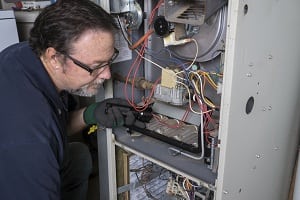
A SEER rating is the maximum rating of efficiency for your HVAC unit. This means that though the SEER rating displays a certain number, it’s not always working at that number - the SEER rating number only displays the maximum level of efficiency it can operate at.
SEER ratings are super simple if you just think about them the way you think about MPG in a car. Your car displays a certain MPG, but if you're revving the engine and speeding down the interstate, you're probably not going to get the listed MPG. Apply this concept to your AC unit, and you can see how constantly changing your home's temperature can result in a decrease in efficiency and a suboptimal SEER rating.
Are High SEER Ratings Worth it?
If you've heard the common sales pitch "this SEER rating will pay for itself in 10 years", or something like that, then we hope you haven't fallen for this. Remember, the SEER rating is a measurement of maximum efficiency. It's the limit of your HVAC unit. This means that if you are putting some heavy usage on your AC unit, then you're definitely not getting that high SEER rating number that is labeled on your unit.
In all honesty, we'd prefer to be the HVAC contractor that achieves success by customer trust and long-term repeat customers, not sales pitches on expensive high SEER equipment - that's why we're telling you all of this. In fact, we'd prefer it this way, otherwise, our customer service line would be flooded with irate customers. We don't want that, you don't want that - let's move on.
Upgrading Your Condenser to a higher SEER Rating Does NOT Make Your Entire System that SEER Rating
Many of our customers wonder how they can save money while at the same time upgrading their SEER value. The biggest misconception out there is that you'll improve your SEER rating by purchasing a higher SEER condenser. Well, you can't! You can't just upgrade one HVAC component at a time and expect a higher SEER rating. Not to mention that many components are not compatible with each other causing a whole other batch of headaches to deal with. Stick to this rule of thumb - if you really want that higher SEER rating, have an entirely new HVAC system installed, please.
We hope this sheds some light on SEER ratings and that you have all the information you need to make an informed decision about your new HVAC installation, repair, or maintenance. Thank you again for reading and please call or contact one of our NexGen technicians for any questions you may have about SEER value or any HVAC-related concerns.
Call NexGen Today
Our expertise and commitment to customer satisfaction make us the leading HVAC company in Southern California. To learn more about our equipment, services, and protection plan,
book an appointment online or call
888-277-0415.
Why is My Air Conditioner Not Working?
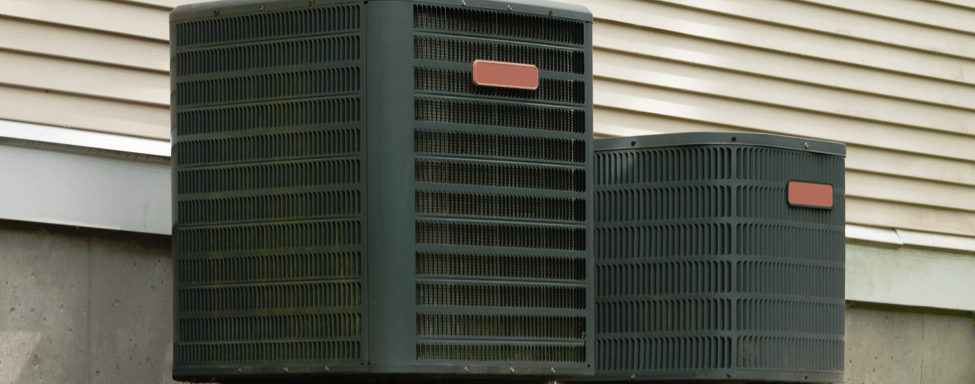
Why is cold air blowing when the heat is on?
Try changing your air filters then check to see if your HVAC system starts blowing warm air. If the issue continues, please call a technician as the system may overheat leading to expensive repairs or replacement. If your furnace is a gas furnace, check to see if your pilot light is out.
How to fix a heat pump blowing cold air
Heat pumps operate by moving hot air from outside air into your home. For those who live in colder temperatures, it may become difficult for your heat pump to heat your home as the air outside is cold. During the coldest months, your heat pump has to work extra hard in order to heat a room. Sometimes, your heat pump will actually be blowing warm air into your home, but it may just be a case of it not being warm enough to your liking. If your heat pump truly isn't working properly, check your refrigerant and air filters - that's where most heat pump issues are found.
Why my air conditioner is not cooling?
Similar to a heat pump, an AC also vents air - but this time it's funneling hot air from inside your home to the outside. Your AC is usually split into two parts: The inside part is the evaporator, which absorbs the hot air, and the outside part is the condenser, which expels the hot air. Condensers get very dirty over time and regular cleanings are necessary to ensure your home is properly cooled. If you're having cooling issues with your HVAC system, check to see if your condenser is indeed clean.
Why is it colder in one room than in the other?
If some rooms are warmer or colder than others, this is usually just a matter of balancing. All this means is that you should adjust the airflow into each room. You can do this by adjusting your vents to balance out the airflow around your home. If a room is heating or cooling much quicker than other rooms, the airflow can be reduced to that room to even things out. This will also send more air to other areas.
Call NexGen Today
Our expertise and commitment to customer satisfaction make us the leading HVAC company in Southern California. To learn more about our equipment, services, and protection plan,
book an appointment online or call
888-277-0415.
Should I Replace My HVAC System?
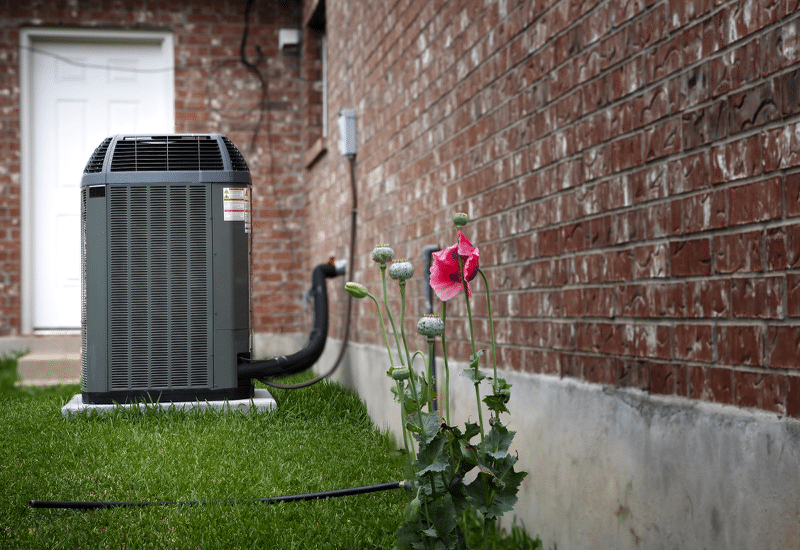
Let's get right to the point with this one!
If your air conditioning system is under 12 years old, it probably doesn't need to be replaced. The average lifespan of an AC unit is between 15 and 20 years. Any system under 12 years old should have a few years left in it and opting for a repair or minor tune-up should suffice.
How many years does an AC last?
HVAC systems require regular maintenance to maximize their useful lifespan. But, even the best-maintained HVAC systems should only last 15 - 20 years. To further break this estimate down, you can expect a furnace to last for 15-20 years, heat pumps for 16 years, and AC units can last 10-15 years.
So you've decided it's time to replace your system and you're wondering how long it's going to take to install a new HVAC system? Right off the bat, a typical install for a basic furnace can take 4-10 hours. Likewise, a similar grade AC unit can be installed in 4-8 hours. Installing a combo furnace/AC project can take 8-14 hours.
How much does it cost to replace a central air conditioning unit?
Expect to pay anywhere between $500 and $4,000 for central air conditioning. The reason this range is so large is because there are a lot of variables to consider. If your home is smaller, requiring a smaller HVAC system and possibly a less intricate installation, you can expect to pay much less. If your ductwork needs to be replaced, it can add a bit more to your bill. The best way to save on an HVAC replacement is to actively monitor your current HVAC system. Proper maintenance if the entire system will ensure the smoothest transition into a replacement system.
Call NexGen Today
Our expertise and commitment to customer satisfaction make us the leading HVAC company in Southern California. To learn more about our equipment, services, and protection plan,
book an appointment online or call
888-277-0415.

















